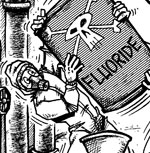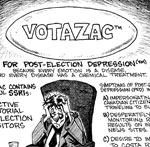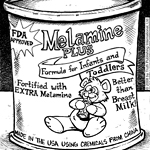Healthy Foods Containing Niacin
| Share on Facebook | Share on Twitter | Share on Google+ |
The food sources you eat everyday can usually provide the adequate amount of the niacin vitamin that you need. Nevertheless, what is niacin and why is it important to take in enough foods with niacin?
About Niacin
Niacin, commonly known as vitamin B3, is one of the most important of the vitamins in the B complex family. It is responsible for various physiological and enzymatic functions in the body, which include the proper metabolism of fats, carbohydrates and proteins, as well as the proper functioning of over 50 much-needed enzymes in the body.
Niacin also has the ability to lower the LDL cholesterol (coined as bad cholesterol) level and prevent build-up of plaque on arterial walls. It also plays a major role in maintaining the proper functioning of the nervous system, the digestive tract, and the brain. These are just some of the multitude of functions that this vitamin is responsible for.
Niacin Food Sources
Considering the importance of niacin, what are the niacin rich foods that should not be omitted in your daily diet? If you are a typical individual who eats healthy meals each day, you have no reason to worry about niacin deficiency.
There is a wide range of foods containing niacin. Niacin is more abundantly found in animal sources, although a few plant sources are rich in niacin as well. Niacin foods include all lean red meat, fish, organ meats (kidney, liver), prawns, pork, as well as milk and other dairy products. Other niacin rich foods include almonds and seeds, wheat products, beans, rice bran, green leafy vegetables, carrots, turnips and celery.
The RDA for Niacin
The recommended daily intake of niacin is just a mere 14-16 mg for adult women, 16-20 mg for men. This small amount can easily be taken from the daily diet. However, those who are deficient (for one reason or another) would need a lot more than just this RDA amount. In the same way, women who are pregnant or breastfeeding slightly need a lot more.
Niacin Therapy
Niacin has been found to have medicinal benefits aside from those mentioned above. The most widespread use of vitamin B3 as a therapeutic vitamin is for lowering bad cholesterol levels and promoting general heart health. It is also being used for treatment and management of schizophrenia, psychosis and dementia. Niacin therapy has also been used for arthritis, diabetes, weight loss and acne. Therapeutic doses of niacin cannot be achieved by intake of food with niacin. Instead, supplemental doses of niacin are needed. To affect various conditions, niacin supplements should be taken in doses that are much more than the minimum RDA - usually starting from doses as high as 2000 milligrams.
Niacin Supplements
Niacin is available in three forms: namely, nicotinic acid, niacinamide and inositol hexaniacinate, each of which has its own specific therapeutic properties. Lowering of cholesterol, for example, can be achieved through nicotinic acid and inositol forms, but not the niacinamide form. Niacinamide on the other hand is seen to have significant anti-inflammatory properties and enables niacin therapy without the uncomfortable flushing.
Adequate vitamin B3 can be taken through the abundant foods containing niacin that is widely available in nature. However, for therapeutic purposes, niacin has to be taken in its supplemental form at relatively high doses.
-
Skin CareMen Skin Care
-
Free ResourcesFree eBooks
-
A good laugh and a long sleep are the best cures in the doctor's book.Irish Proverb
-
What We RecommendNatural Cholesterol Supplement
- Lower levels of LDL
- Higher levels of HDL
- Lower levels of triglycerides
- Without negative side effects
-



















